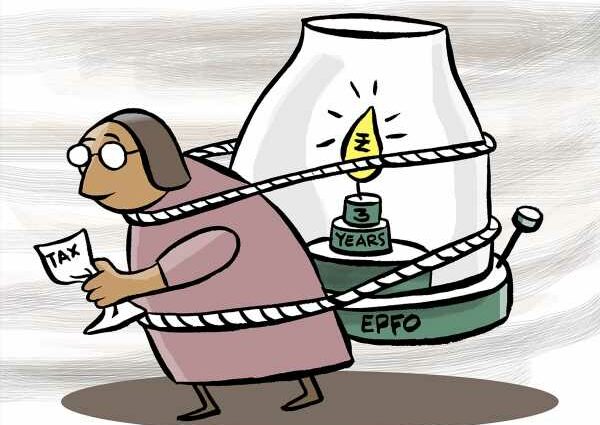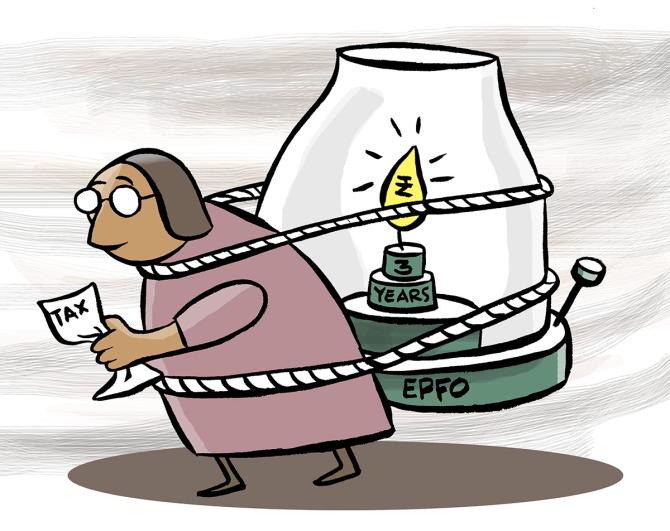The Employees’ Provident Fund Organisation (EPFO) made its maiden investments in the National Stock Exchange Nifty50 and the S&P BSE Sensex exchange-traded funds (ETFs) offered by Nippon India and ICICI Prudential (IPru) in July.
These two fund houses are now in the company of public sector bank-linked players SBI Mutual Fund (MF) and UTI MF, whose products have traditionally been used by the retirement fund body.
EPFO’s investment corpus was routed through Nippon and IPru nearly three months after they were approved for empanelment with the social security organisation.
Over the years, EPFO has exclusively invested in Nifty50 and Sensex ETFs from only two asset management companies (AMCs) — SBI and UTI.
These ETFs have received the bulk of EPFO’s equity allocations, with some portions flowing into CPSE and Bharat 22 ETFs — the funds created to help the government achieve its divestment targets.
“The onboarding of two more asset managers will assist the EPFO in diversifying its AMC exposure for the increasing investments in index ETFs,” said Dhirendra Kumar, chief executive officer, Value Research.
AMCs will benefit from robust and consistent flows into the selected ETFs.
As a result of EPFO’s contributions, the assets under management (AUM) of ICICI Prudential Nifty50 ETF rose by almost 10 per cent month-on-month to Rs 5,900 crore in July.
In the case of its Sensex ETF, the AUM surged by 64 per cent, growing from Rs 442 crore to Rs 725 crore.
Nippon India Sensex ETF’s AUM also jumped by 19 per cent to Rs 559 crore.
Its Nifty50 BeES ETF, given its significantly larger base, experienced a more modest 4 per cent gain.
Overall, it is estimated that each of the schemes received between Rs 200 crore and Rs 500 crore from EPFO in July.
The boost in AUMs from EPFO will enable these ETFs to attract flows from other institutional as well as retail investors.
ETFs with larger AUM are better positioned than others in terms of liquidity.
In the previous financial year (2022-23), EPFO invested Rs 53,081 crore into ETFs, as indicated by data shared by the government in Parliament.
This investment accounted for more than 50 per cent of the total gross inflows into all equity ETFs.
The retirement fund is permitted to allocate up to 15 per cent of its flows into equity.
This limit has increased over the years; in 2015-16, the limit stood at just 5 per cent.
While Nippon and IPru are assured of healthy inflows into their ETF offerings, this move has come with some sacrifice.
Prior to receiving these inflows, the two AMCs significantly reduced the fees they charge for managing the Nifty50 and Sensex ETFs.
In May, IPru slashed the total expense ratio (TER) of the Nifty50 ETF from 0.05 per cent to 0.027 per cent.
Similarly, the TER of the Sensex ETF was nearly halved to 0.025 per cent.
TERs imposed on these ETFs are now the lowest in their category.
Simultaneously, Nippon India ETF reduced the TER of the Nifty50 ETF to 0.03 per cent from 0.05 per cent.
SBI MF and UTI followed suit and lowered the TERs of their two index trackers to below 0.05 per cent.
The decision to empanel two new AMCs was made at EPFO’s Central Board of Trustees meeting at the end of March.
Disclaimer: This article is meant for information purposes only. This article and information do not constitute a distribution, an endorsement, an investment advice, an offer to buy or sell or the solicitation of an offer to buy or sell any securities/schemes or any other financial products/investment products mentioned in this article to influence the opinion or behaviour of the investors/recipients.
Any use of the information/any investment and investment related decisions of the investors/recipients are at their sole discretion and risk. Any advice herein is made on a general basis and does not take into account the specific investment objectives of the specific person or group of persons. Opinions expressed herein are subject to change without notice.
Source: Read Full Article
-
Jake Tapper To Return To Daytime Show After Midterm Stint In Primetime
-
U.S. Jobless Claims Climb To Highest Level Since October 2021
-
Musk Reaches Compromise With Apple Over Twitter Removal From App Store
-
European Shares Mixed As Investors Watch US Debt Deal Progress
-
Google versus Epic Games verdict in US cheers Indian gaming developers


